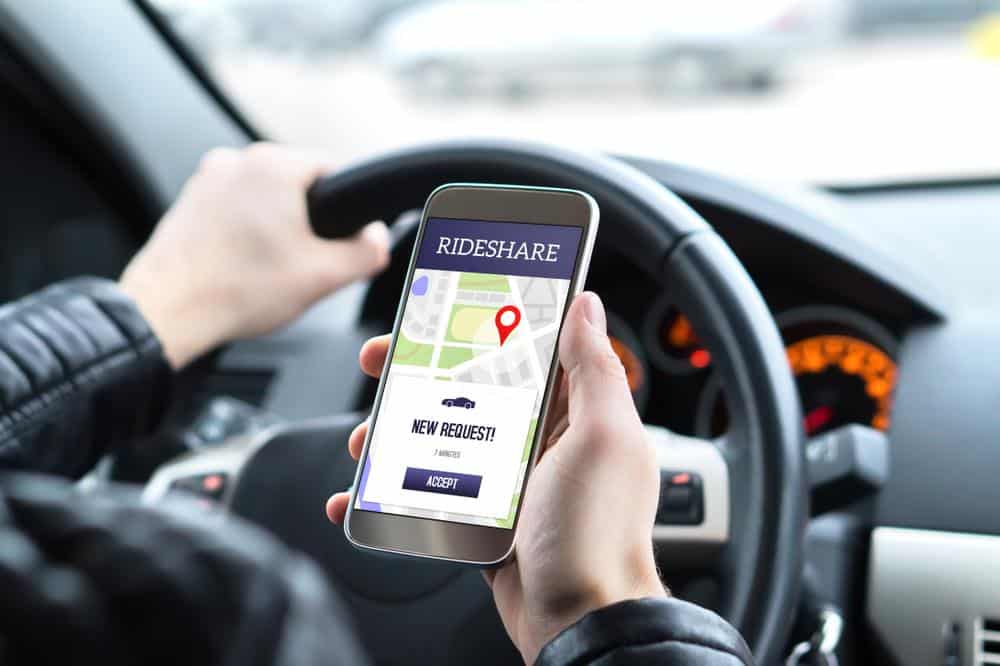Lyft Passenger Accidents in Baltimore

Ridesharing has emerged as a viable alternative to relying on conventional forms of public transportation and driving your vehicle. It offers convenience and comfort to all passengers seeking a way to get around town quickly. Still, you cannot dismiss the possibility of being a passenger involved in Uber or Lyft accidents in Baltimore.
Accidents can happen and even experienced Uber and Lyft drivers cannot avoid them completely. But what occurs in the aftermath of that crash? Can you expect injury coverage if you are involved in an accident as an Uber or Lyft passenger?
Let’s take a closer look at certain accident scenarios to determine what rideshare passengers can expect regarding coverage. We will also dive into other matters related to rideshare accidents, so stick around to pick up knowledge that could help you out of potentially confusing and stressful situations.
Scenario 1: Lyft/Uber Driver Was Clearly at Fault for the Accident
Our first scenario involves an accident where your Uber or Lyft driver was clearly the party responsible for what happened AND the Uber or Lyft rideshare driver accepted a trip or had a rideshare passenger in their car. In that situation, Uber or Lyft’s insurance policy covers you. Both Lyft and Uber maintain $1,000,000 in third-party auto liability, and you can receive a payout from that policy if your driver is the one who caused the accident.
You can file a claim with their insurance provider to cover medical expenses and any damaged property. If the accident leads to significant or lasting injuries, you have the right to seek additional compensation. Hiring a Baltimore Lyft accident lawyer can be crucial in ensuring you receive the full compensation you deserve. They can guide you through the process and help maximize your claim.
Note that the $1,000,000 third-party liability coverage is effective from the start of the rideshare trip until the rideshare passenger is dropped off at their destination.
If the rideshare driver attempts to make a deal with you without using the app, you are taking a big risk by agreeing to it. It would be best to only abide by the terms of the trip you booked via the Lyft or Uber app.
Scenario 2: Lyft/Uber Driver Was Not at Fault for the Accident
Next, let’s look at what happens if the rideshare driver is not responsible for your accident. In this scenario, the fact that you were in the middle of a rideshare trip has no bearing on your compensation. Your focus should be on obtaining compensation from the negligent driver.
Request insurance and contact information from the party responsible and contact them after consulting your doctor and lawyer. Also, go to those consultations before getting back in touch with the negligent party so you can put forth a more solidified insurance claim. There is always a possibility that the negligent driver will dispute your claims and suggest they should not be liable for what happened. At that point, you and your lawyer should prepare for a more drawn-out legal battle.
Additional factors, such as the erring driver’s insurance, could complicate this matter. We will get into that topic a bit later in this article, so please stick around for that.
Scenario 3: Liability Is Not Clear, and Both Vehicles Have Contributed to the Accident
In a scenario where it’s unclear who’s at fault in a rideshare accident, it can seem like both drivers share responsibility. This often leads to a court dispute.
Regardless of the outcome, Uber provides up to $30,000 in coverage. If the court rules your rideshare driver is at fault, you can pursue further compensation from Uber. Conversely, if the other driver is found responsible, you should seek compensation from them. It’s important not to wait for the case to conclude before taking action.
Hiring an attorney early can help determine the best steps to secure the compensation you deserve.
How Liability Becomes Determined in a Baltimore Lyft Accident Claim
Establishing liability is always important in a personal injury case. Liability determines who is at fault for a particular accident. Once you establish liability, the innocent people affected by the accident can start recouping compensation from the at-fault party.
In most car accident cases, liability is often based on which party was negligent before the crash. As a reminder, essential elements of negligence cases include the legal duty of care, the defendant’s breach of that duty, the plaintiff’s injuries, and the defendant’s actions directly causing those injuries. All of those elements must be present in an accident claim based on negligence.
So, how are those elements unearthed in personal injury cases? Lawyers often conduct investigations to come up with those elements. They return to the accident sites to collect evidence, search for video footage, and speak to witnesses to understand what happened. They also coordinate with law enforcement to assemble more comprehensive documentation of the events.
Collecting all that evidence should paint a clear picture of what happened during the accident. The lawyer can present all of those elements and either negotiate a payout from the offending party or take the matter to court and secure compensation that way.
Negligence is often at the heart of personal injury claims, but it still is not the root cause all the time. The accident may still be the result of an intentional act. Road rage incidents are prime examples of that. You can still recoup compensation even if the accident you were involved in was a road rage incident.
How Passengers Can Miss Out on Compensation in Lyft/Uber Accidents
Establishing liability is always important in a personal injury case. Liability determines who is at fault for a particular accident. Once you establish liability, the innocent people affected by the accident can start recouping compensation from the at-fault party.
In car accident cases, liability is often based on which party was negligent before the crash. As a reminder, essential elements of negligence cases include the legal duty of care, the defendant’s breach of that duty, the plaintiff’s injuries, and the defendant’s actions directly causing those injuries. All of those elements must be present in an accident claim based on negligence.
So, how are those elements unearthed in personal injury cases? Lawyers often conduct investigations to come up with those elements. They return to the accident sites to collect evidence, search for video footage, and speak to witnesses to understand what happened.
Collecting all that evidence should paint a clear picture of what happened during the accident. The lawyer can present all of those elements and either negotiate a settlement from the offending party’s insurance company or take the matter to court and secure compensation that way.
A Deeper Look into Personal Insurance and Lyft Insurance Coverage in Maryland
Earlier in this article, we explored how to secure compensation if you’re a passenger involved in an Uber or Lyft accident during a ride.
However, not all rideshare accidents are straightforward. In this section, we’ll delve into the factors that can complicate the process of obtaining compensation.
The Other Driver’s Lack of Insurance
While you might expect all drivers to have proper insurance, that’s not always the case. Some drive without car insurance and the ability to cover accidents they might cause, putting everyone at risk. If the at-fault driver in your accident lacks insurance, you can file a claim under Uber or Lyft’s uninsured motorist coverage. In Maryland, this type of coverage is mandatory, so you should receive compensation from your rideshare provider.
If the other driver has insufficient insurance, you can still file a claim with their insurer for compensation, but it might not cover all your expenses. In such cases, you can also file a claim with Lyft or Uber’s underinsured motorist policy to help cover any remaining medical costs.
The Presence of the Rideshare Driver’s Commercial Insurance
Although it’s uncommon, some rideshare drivers have commercial auto insurance, which differs from standard insurance by offering higher coverage limits. This provides better protection for both drivers and passengers.
If your rideshare driver holds a commercial policy, you can file a claim with it first, likely receiving sufficient compensation due to its higher limits. If the commercial insurance falls short, you can still file a claim with Lyft or Uber’s underinsured motorist coverage to ensure full compensation.
The Status of the Ridesharing App
The status of the ridesharing app significantly impacts compensation in accident scenarios. When the app is active but no rides are booked, Uber and Lyft provide primary insurance coverage of up to $50,000 per person for bodily injury and $25,000 per accident for property damage.
However, if the app is inactive, the driver is treated like any other motorist, relying solely on their personal insurance policy. In such cases, compensation can be sought from the driver’s insurer if they are found responsible for the accident.
The Presence of Personal Injury Protection Coverage
One more element we need to discuss when discussing Lyft or Uber’s auto policy is personal injury protection coverage. That element of auto insurance is also known as PIP coverage.
PIP coverage accounts for the medical bills and lost wages that rideshare drivers and their passengers may sustain following their respective accidents. It provides coverage to assist drivers and passengers with their immediate needs.
Lyft Accident Attorney in Baltimore, Maryland
Lyft passenger accidents in Baltimore are far from rare. If you are ever involved in one of those crashes, do not forget that attorney John Leppler can help you out. John is never too busy for his clients, so do not hesitate to reach out. Contact us at Leppler Injury Law today if you are interested in his legal services!
